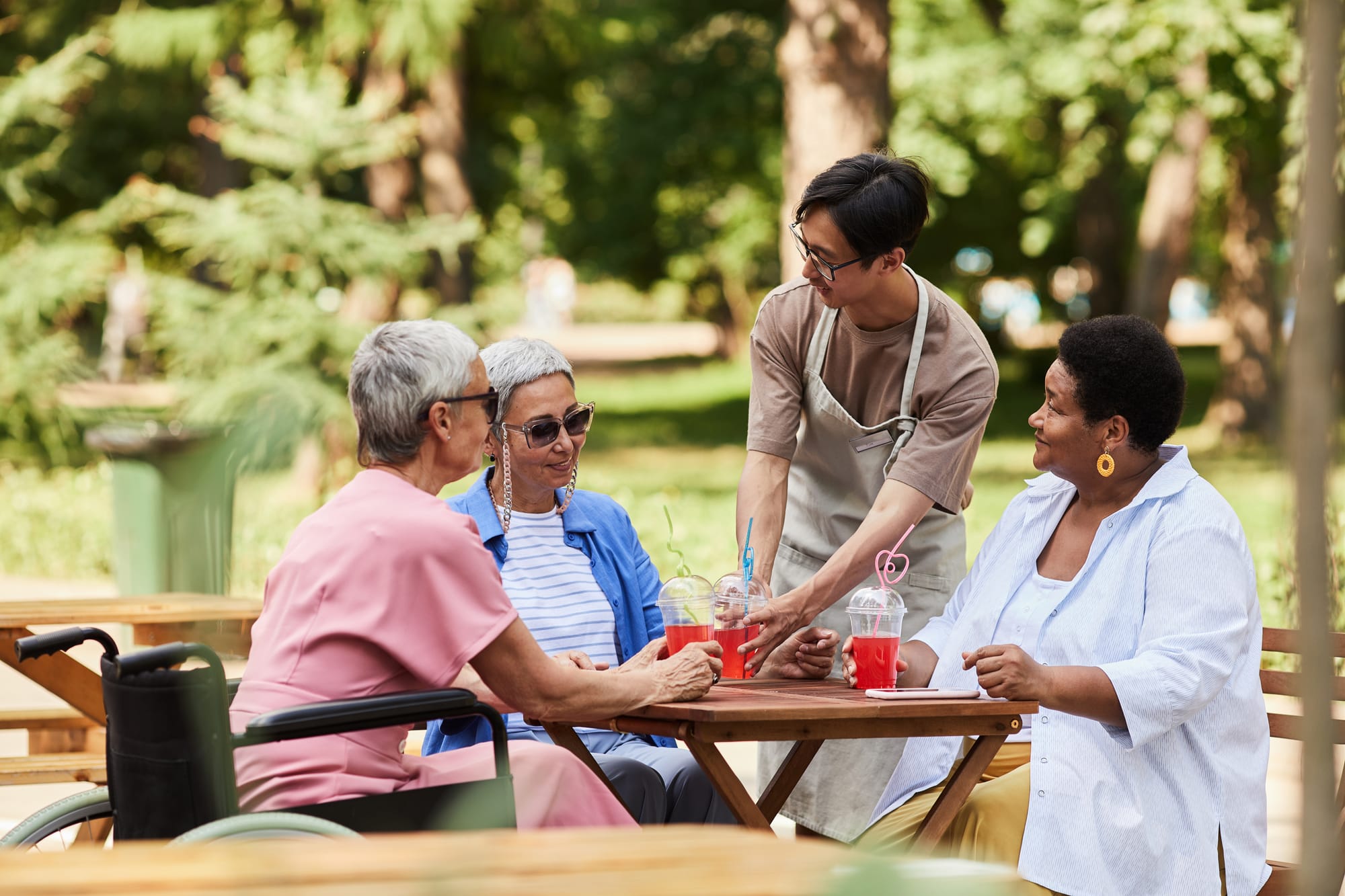From Challenges to Comfort: Palliative Care for Dementia Patients
Practical ways palliative care makes life more comfortable for dementia patients, addressing their physical and emotional needs with care.
In retirement, staying socially engaged is key to aging well. Building relationships through volunteering, joining clubs, and reconnecting with loved ones can bring joy, purpose, and even better health.

As we grow older, it becomes abundantly clear that the quality of our connections defines the quality of our lives. In our younger years, friendships form naturally—at school, through work, or at social gatherings—but what about retirement? Once the routine of daily life changes, many of us might fear that we’ll lose touch with our social circles. Yet, the golden years are far from a time for isolation; in fact, they offer a rich opportunity to strengthen relationships and form new ones. And doing so isn’t just a nice idea—it’s essential for aging well.
By now, most of us have heard the warnings about loneliness in older age. It’s not just a feeling; it’s a health risk. Social isolation can lead to depression, anxiety, and cognitive decline. But here’s the good news: meaningful relationships work in the opposite way. Regular social interaction keeps our minds sharp, our spirits lifted, and our bodies healthier.
Research shows that older adults with strong social ties are less likely to develop high blood pressure, heart disease, or strokes. They also tend to live longer. But the benefits aren’t just physical—there’s something deeply human about feeling needed, valued, and part of a community. A phone call with a friend, a regular card game, or even just a wave from a neighbor can bring warmth to our daily lives.
But how does one go about staying connected in retirement? Let’s dive into some practical ways to build and maintain social bonds.

You might be surprised by how fulfilling volunteering can be. It’s more than lending a hand—it’s an opportunity to meet people, share experiences, and gain a renewed sense of purpose. Whether you’re mentoring young adults, helping out at a local charity, or organizing community events, the people you meet in these settings are often as eager for connection as you are.
For example, many communities offer programs where seniors mentor younger generations in schools or community centers. Not only do you get to share your hard-earned wisdom, but you also get to enjoy the vibrancy of youth. Local hospitals, animal shelters, and religious organizations are always looking for volunteers too, giving you a range of choices to find something that truly resonates with you.
What’s better than sharing your passions with others? Joining clubs and groups is an easy way to do just that. Whether it’s a book club, a gardening group, or a walking club, these gatherings provide the perfect excuse to meet regularly and bond over shared interests.
Senior centers and libraries often host clubs specifically for retirees, offering a low-pressure way to socialize. And if mobility is an issue, there’s likely a group near you that’s just a short trip away. Recreation centers, churches, and even local cafes often have notice boards full of opportunities for group activities.
Another exciting way to build connections is through learning. You’re never too old to learn something new—whether it’s a new hobby or even a subject you’ve always been curious about. Sign up for a painting class, pick up a photography course, or explore history lectures at a nearby community college. Classes like these are wonderful environments to meet people, especially when everyone is starting something new together.
For those with limited mobility, many online platforms now offer virtual classes where you can interact with others from the comfort of your home. Imagine connecting with people all over the world who share your interests—it’s a new world of socializing without even stepping outside.

There’s something uniquely comforting about reconnecting with people who have known you for years. Old friendships can sometimes fade, not because of any disagreement, but simply due to the passing of time. Retirement is the perfect moment to reach out to an old friend, perhaps someone you haven’t spoken to in decades. The shared history and familiarity can reignite friendships that offer emotional depth and comfort.
As we age, family connections take on new importance. Whether it’s through regular visits, family dinners, or even just a weekly phone call, staying engaged with children, grandchildren, or extended family provides a vital sense of belonging. You don’t have to become the grandparent who doles out wisdom on demand (although you could if you wanted to), but simply staying involved in family life can keep you feeling grounded and connected.
Don’t underestimate the value of neighbors. They can offer spontaneous, low-commitment social interactions—a friendly chat while watering the garden, borrowing a cup of sugar, or simply a wave as you pass by. Neighbors can become good friends, and these regular, small interactions can fill the gaps between more formal social engagements.
Today, many of our loved ones live miles (or even countries) apart, technology has emerged as a bridge between those distances. Platforms like Facebook or Instagram allow you to see what friends and family are up to, and video calls on Zoom or WhatsApp mean that grandchildren don’t have to be far away just because they live in a different state.
If you’ve got a hobby or interest, chances are, there’s an online group for it. From knitting to photography to vintage car enthusiasts, there’s a virtual community for almost anything. Joining these groups offers a chance to make connections beyond your immediate circle.

If getting around is difficult, invite the world in. Hosting a small gathering at your home—whether it’s a coffee morning or a game night—can provide the social interaction you need without the hassle of traveling.
If the idea of group activities feels daunting, that’s okay too. Start small. Reaching out to just one person at a time can gradually build your confidence. Social engagement doesn’t always mean large groups; sometimes, deep, one-on-one conversations are just as enriching.
Loss is inevitable as we age, but finding new friendships can help fill the emotional gaps left by loved ones. Support groups, grief counseling, or simply being open to new connections can ease the path forward.
Engaging socially has long-term effects on cognitive health, helping delay or even prevent the onset of dementia. Social bonds offer emotional resilience in the face of life’s challenges, while also reducing stress and fostering happiness. And the cherry on top? Seniors who stay socially active live longer. It turns out that the key to aging well is staying connected.
Retirement isn’t a time to retreat into solitude—it’s an opportunity to reach out, to deepen relationships, and to build new ones. The golden years are a chance to create a vibrant social life, one that can sustain you mentally, emotionally, and even physically. So, take a step today—whether it’s calling an old friend, joining a local club, or volunteering at the community center. The connections you make will make all the difference.